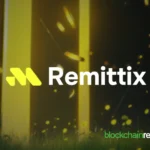The cryptocurrency market is undergoing a significant transformation with the recent emergence of altcoin ETFs, which provide regulated exposure to various altcoins including XRP, Dogecoin, Solana, and Cardano. These financial products allow investors to engage with these digital assets without directly owning them, a feature that many find appealing. This recent wave of ETF approvals not only marks a pivotal moment but also indicates a growing acceptance from institutional investors and increasing regulatory clarity in the altcoin sector.
Interest from institutional players in altcoins has skyrocketed over the past few years, a trend fueled by advancements in technology and the successful introduction of Bitcoin and Ethereum ETFs. Leading asset managers are stepping in to create avenues for institutional capital to channel into altcoins, enhancing liquidity and Affirming altcoins as viable investment options within conventional financial frameworks.
Several key factors have contributed to heightened institutional interest in altcoins. Firstly, innovations in blockchain technology are driving traction for emerging altcoins such as Solana and Avalanche, which are praised for their advanced functionality and staking yields. Furthermore, altcoin ETFs present a regulated and more secure avenue for institutional investment in these digital assets, appealing to entities looking to navigate this evolving market responsibly. Current market dynamics also suggest that an ‘altseason’—a period characterized by increased liquidity and influx of institutional investment—could be on the horizon, capturing the attention of many investors.
The regulatory landscape surrounding altcoin ETFs has advanced considerably, with the SEC adopting a more streamlined approach. The introduction of new generic listing standards for crypto ETFs has reduced the approval timelines from 240 days to potentially as few as 75 days. Additionally, the ’40 Act’ regulatory pathway is proving effective in facilitating altcoin ETF approvals, setting a precedent that may benefit future financial products in this space.
The SEC’s evolving strategy, moving from ‘regulation by enforcement’ to a more sensible regulatory approach, is fostering innovation within the crypto sector. This change is lowering barriers to ETF approval processes, encouraging asset managers to explore new possibilities in the altcoin market.
The ratification of altcoin ETFs is projected to attract billions of dollars of institutional capital, significantly enhancing liquidity across the altcoin arena. Increased liquidity, in turn, is expected to drive up prices, making altcoins increasingly attractive not just to institutional investors, but also to retail investors.
On a broader scale, the approval of altcoin ETFs may herald a new ‘altseason,’ characterized by increased trading activity and capital flows. There is also potential for the success of altcoin ETFs to spark innovations in financial derivatives like options and futures, encouraging further participation in the cryptocurrency market. While major altcoins stand to benefit considerably, the effects on smaller altcoins and niche projects are areas of ongoing exploration.
Comparatively, Bitcoin and Ethereum ETFs have paved the way for the introduction of altcoin ETFs, showcasing the feasibility of these products in more traditional financial markets. However, altcoin ETFs offer unique advantages, such as greater exposure to a diverse array of digital assets and the potential for substantial growth due to ongoing technological advancements.
Despite the opportunities that altcoin ETFs present, they also confront numerous challenges, including regulatory scrutiny, market volatility, and potential tracking errors. Investors and asset managers must engage in thorough due diligence to navigate these risks effectively.
Addressing these challenges requires careful attention to regulatory compliance, with asset managers needing to adeptly navigate complex frameworks. Additionally, employing diversification strategies and advanced tracking methods can help mitigate risks associated with altcoin investments. Educating investors about the specific characteristics of altcoin ETFs is also crucial for broader acceptance.
Several altcoins have emerged as strong candidates for ETF approvals due to their innovative technologies and solid market performance. Noteworthy examples include Solana, known for its high-speed transactions, which has become increasingly popular among institutional investors, and Avalanche, which emphasizes scalability and interoperability, especially in decentralized finance (DeFi) applications.
The acceptance of altcoin ETFs is changing the financial landscape, bridging the divide between traditional finance and the crypto ecosystem. This integration is fostering innovation and creating new financial opportunities for both investors and asset managers.
Looking ahead, the rise of altcoin ETFs signals a broader adoption of digital assets within conventional financial markets. This trend is likely to instigate further innovation and can influence global financial systems and regulatory policies.
Ultimately, altcoin ETFs represent a major advancement for the cryptocurrency market, providing regulated pathways for both institutional and retail investors to gain exposure to digital assets. Despite the challenges that lie ahead, the long-term outlook for altcoin ETFs remains promising, with the potential to drive innovation, enhance liquidity, and foster broader acceptance across financial ecosystems.






